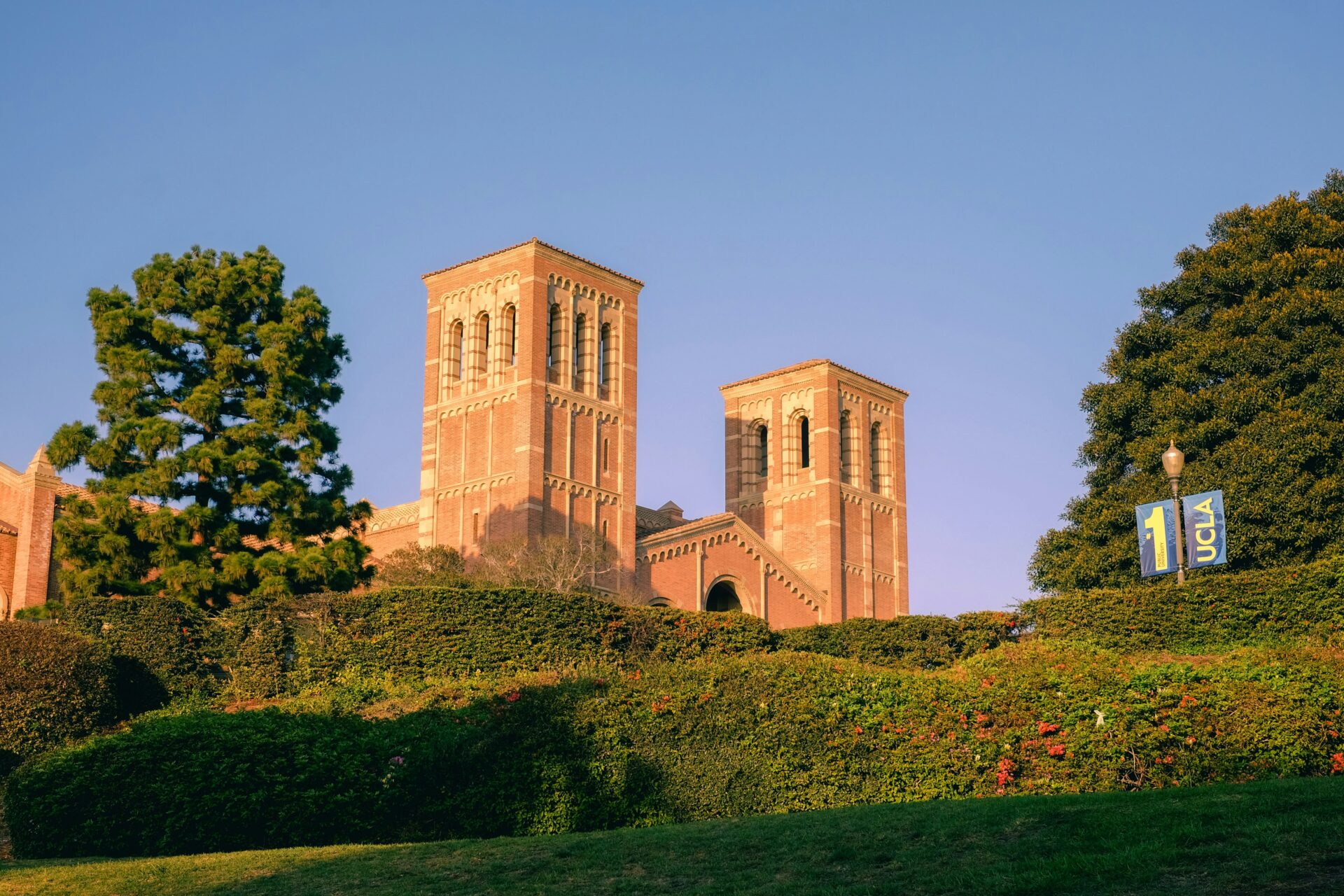University of California, Los Angeles (UCLA) researchers came together to showcase medical and scientific projects that will be jeopardized because of President Donald Trump’s suspension of more than 800 research grants and $584 million in federal funding at the university. The “Science Fair for Canceled Research” intended to highlight the human and societal costs of the freeze. University officials and scientists attended the fair on Thursday, Sept. 11.
The “cuts would be a death knell for innovative work that saves lives, grows our economy and fortifies our national security,” UC President James B. Milliken said in a statement.
The discontinuation of funding stemmed from a U.S. Department of Justice announcement on July 29, accusing UCLA of failing to adequately address antisemitism on campus, particularly in the wake of pro-Palestinian protests after the Oct. 7, 2023 Hamas attack on Israel. U.S. Federal officials claim UCLA engaged in systemic antisemitism and discriminatory admissions practices, despite California’s longstanding ban on affirmative action.
“This disgusting breach of civil rights against students will not stand: DOJ will force UCLA to pay a heavy price for putting Jewish Americans at risk and continue our ongoing investigations into other campuses in the UC system,” U.S. Attorney General Pam Bondi said in a statement.
As a result, the National Science Foundation (NSF) and National Institutes of Health (NIH) suspended hundreds of grants, citing both antisemitism and alleged violations of Trump’s administration executive orders on diversity, equity and inclusion.
UCLA leaders pushed back, arguing that the cuts punish researchers and patients rather than addressing discrimination.
“It is a loss for Americans across the nation whose work, health and future depend on the groundbreaking work we do,” UCLA Chancellor Julio Frenk said in a message to the campus. “This far-reaching penalty of defunding life-saving research does nothing to address any alleged discrimination.”
The chancellor noted that “UCLA has taken robust actions” to combat antisemitism, including launching a standing Initiative to Combat Antisemitism.
Graduate student William Guan Liu, who works in UCLA’s Wes Campbell Lab on quantum computing, said the freeze has already forced his group to halt equipment purchases, cut postdoctoral positions and even push students to graduate early.
“So we won’t be able to keep building new ion traps. We won’t even be able to have enough people to man the current amount of ion traps we do have right now because one of the ion traps is currently being piloted by the two postdocs who are leaving,” Liu told New University. “To attack the sort of funding for these scientific projects and people’s development of their careers entirely, this is completely unwarranted and it is not effective at all, in my opinion.”
Meanwhile, the legal fight continues. Federal Judge Rita F. Lin ruled in June that earlier terminations of UC grants violated federal law, ordering them restored. Lawyers for the federal government asserted that suspending the UCLA grants didn’t violate Lin’s June order because it banned terminations, not suspensions. However, NSF’s suspensions “differ from a termination in name only,” Lin stated. Hundreds of NIH grants remain frozen.
Along with the grant suspensions, the Trump administration floated a $1 billion settlement that would restore funding if UCLA agreed to restrictions on demonstrations and calls on the university to revise its policies on protests. Gov. Gavin Newsom blasted this proposal as “extortion,” threatening to sue.
The Jewish Public Affairs Committee of California condemned the funding freeze, saying it “does not make Jewish students safer” and undermines the progress the university has made.
As the courts and politicians continue to debate the issue, UCLA’s researchers are turning to the public. At Thursday’s science fair, they presented their work in medicine, technology and public health to show people what is at stake. Frenk highlighted in his statement that these researchers fight tooth and nail to earn these grants for projects that are necessary for America’s well-being.
UCLA PhD student Tanya Ivanov, who researches immunity and molecular pathogenesis in the Kwan Chang lab, studies how a person’s history of infections shapes their innate immune response to future diseases, like cancer and autoimmune disorders. She worries that the suspensions jeopardize both her training and the specialized grants that support graduate students, limiting access to resources, mentorship and opportunities essential to early-career researchers.
“If we don’t get restored funding, then these patients with diseases that we don’t understand will never be able to see a good treatment, or patients with diseases that don’t respond to treatments for whatever reason,” Ivanov told New University. “I mean, like I was saying, many people are working without pay…we’re not going against these suspensions because we’re concerned about our own funding or like our own salaries, we’re concerned about the effects that this will have on public health in general.”
Anika Denny is a News Intern for the summer 2025 quarter. She can be reached at adenny1@uci.edu.
Edited by Annabelle Aguirre

